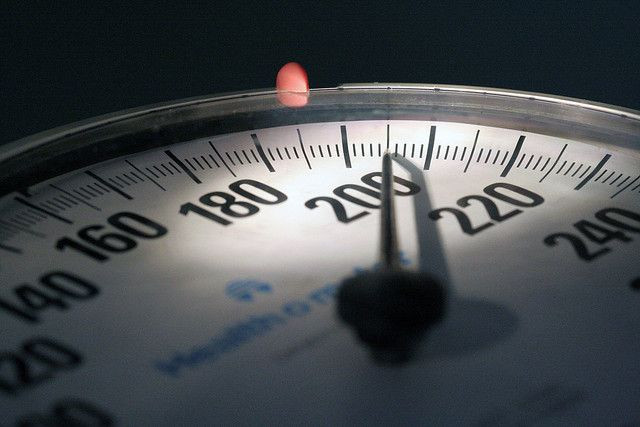Gut Microbiomes Change During Weight-Loss Surgery, Leading To Benefits That Last A Decade

Losing weight is difficult. Ask a fitness expert and they’ll say exercise more. Ask a nutritionist and they’ll say eat healthier and curb your portions. Ask a doctor and he might prescribe you a weight-loss surgery. They’re becoming more and more popular within the U.S., and new research shows that altered gut microbes are linked to weight-loss surgery success stories.
In a new study published in Cell Metabolism, researchers revealed a group of women showed similar microbiome changes that maintained 10 years after two types of bariatric surgeries, Roux-en-Y gastric bypass and vertical banded gastroplasty. When they transferred the microbiota from the women into mice, they observed increased carbohydrate use and decreased fat mass.
The most interesting part of the study, however, was that the microbiome changes were specific to a surgery, and not just a reflection of altered weight changes. The breakthrough could potentially lead to more research in the field of probiotics as an alternative to weight-loss surgery.
Bariatric surgery is an efficient and relatively safe option for losing weight that involves reducing the size of the stomach via a gastric band or through removal of a portion of the stomach or by rerouting the small intestine to a small stomach pouch. It can benefit obese people beyond just losing weight; it can also help with type 2 diabetes and high blood pressure.
Fredrik Bäckhed and his colleagues at the University of Gothenburg in Sweden knew how important the changes to gut microbiome are to the metabolic benefits gained by bariatric surgery, but what they didn’t know was for how long those effects would last. Over the course of nine years, they took the gut bacteria of 14 women after they underwent Roux-en-Y gastric bypass or vertical banded gastroplasty and found that, despite the differences in surgeries, the two procedures had similar and long-lasting changes on the gut microbiome.
They also found the effects to be transferrable, as they took “germ-free” mice, who are bred to be free of all gut bacteria, and treated those mice with the stool samples of the patients who had had the surgery. The mice were able to better metabolize fat via oxidation and put on much less fat than the mice who were given stool samples from obese patients.
"Our findings are important in light of the growing epidemic of obesity and associated diseases," Bäckhed said in a press release. "Since surgery always confers a risk, it is critical to identify non-surgical strategies. One potential strategy would be to devise novel probiotics based on our findings that can be supplied to obese individuals."
Source: Bäckhed F, Carel W, Nielsen J. Roux-en-Y Gastric Bypass and Vertical Banded Gastroplasty Induce Long-Term Changes on the Human Gut Microbiome Contributing to Fat Mass Regulation. Cell Metabolism. 2015.
Published by Medicaldaily.com



























